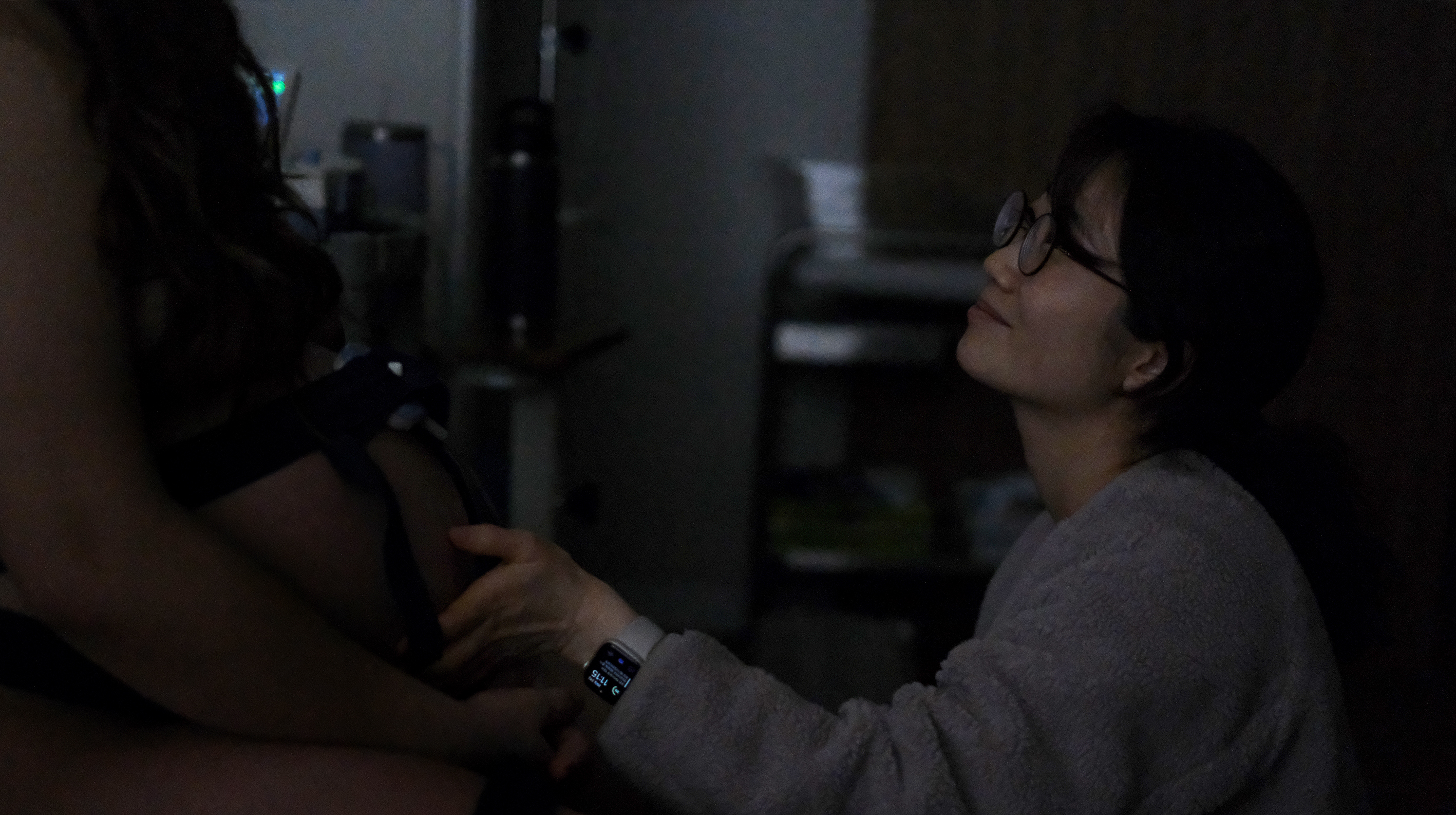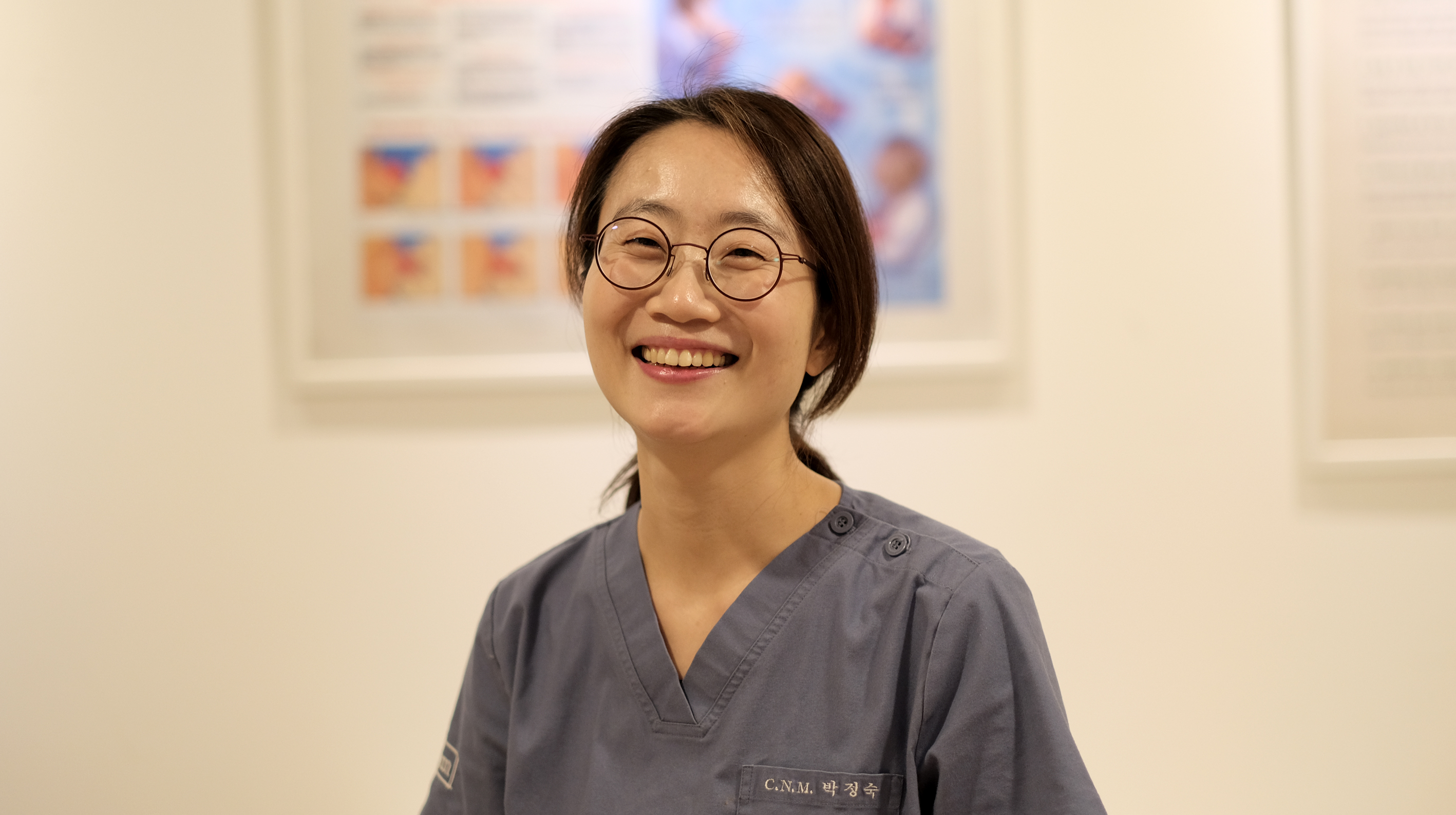How did you get started at Houm?
Well, during my midwifery training, I had my practicum in a hospital delivery room. It was eye-opening to see how some mothers were treated with such disregard. I witnessed one mother in labor asking repeatedly about the need for an episiotomy, only to be met with dismissive responses like, "If you don't want to tear completely, do it yourself!" It made me realize that in such vulnerable moments, mothers deserve more care and respect.
After that experience, I felt disheartened with hospital delivery practices, and that's when I came across Houm. I thought about working there and applied right after finishing my training in 2013.
What made you choose to become a midwife?
Before becoming a midwife, I worked in the emergency room. Most of the time, it felt like I was just sending dying patients off to surgery or the wards. It wasn't a place where you often saw positive outcomes. When someone came in on the brink of death, my role was mostly monitoring, and if they didn't make it, that was it. After about two years, I felt a sense of powerlessness.
Transitioning to midwifery, where you're involved in bringing life into the world, is a completely different experience. It's incredibly fulfilling to ensure the health of both the mother and the baby, and hearing a mother say, "My kids are doing well," brings a lot of satisfaction. Despite the challenges, the work itself is deeply rewarding. Plus, there's something inherently beautiful about everything related to newborns. (Laughs)
Being a midwife surely comes with its challenges. How do you cope with them?
I actually quit once. My husband and I went on a year-long trip around the world, but during that time, I kept reflecting on the moments I spent assisting in childbirth and the families I met. However, I didn't want to return to the hospital system. That's why I came back to Houm. It was a period when I reaffirmed that this was my calling.
It's still quite overwhelming at times. There are aspects beyond our control, and I often remind myself, "This is beyond my scope." If I try to take on everything, I feel like I'll be overwhelmed. While I wouldn't say I'm a devout Christian, I believe in God, and I accept that I'm not capable of saving people perfectly. People typically don't want to take a lower position, but in Christianity, God descended from a high position to a humble one. That idea resonates with me in my moments of helplessness.
With every childbirth, I pray for the safety of both the mother and the baby, but I still worry. You'll often find me pacing outside the birthing room, wondering “Why is it so quiet?”, and when I do hear something, I question, "What's that sound?" (Laughs)

Lastly, what does Houm mean to you?
Houm is a place where there's a supportive doctor who values the role of midwives and listens to the needs of mothers. This creates a sense of security for both families and midwives. It's an environment where midwives can confidently utilize their skills, knowing they have the support of the doctors. Thanks to the dedication and responsibility of the midwives, mothers leave feeling satisfied. Some mothers find comfort in knowing the midwife they've seen throughout their pregnancy is there until the end, while others draw strength from just seeing Dr. Chung's face. It's a collaborative effort that I hope continues to thrive.
I envisioned this place becoming a home for mothers. The birthplace holds significant meaning in one's life, and it's special to be able to tell your children, "You were born here," or "This is the midwife who helped bring you into the world." So, hearing about other birth centers closing saddens me deeply. It's not just about better management; I genuinely hope birthing centers don't have to close their doors for mothers and families.


